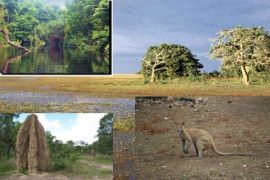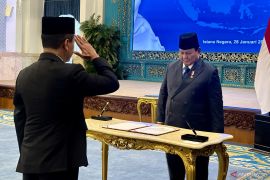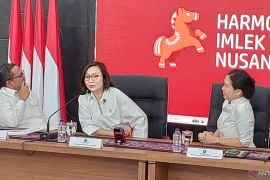"The follow up after signing the Nagoya Protocol next may in New York is to ratify it into an Indonesian regulation," Deputy Minister of Environmental Affairs Arief Yuwono, who is in charge of the environmental damage and climate change control, said here Monday after attending a meeting on the Indonesian preparation for the ratification of the Nagoya Protocol.
The The Nagoya Protocol on Access to Genetic Resources and the Fair and Equitable Sharing of Benefits Arising from their Utilization to the Convention on Biological Diversity was adopted by the Conference of the Parties to the Convention on Biological Diversity at its tenth meeting on 29 October 2010 in Nagoya, Japan.
The ratification of the protocol would become a regulation, which is urgent to be implemented in Indonesia, he said.
Indonesia, as the world`s second largest mega biodiversity after Brazil, should be able to improve the people`s welfare by benefiting from the rich biodiversity, he said.
By adopting the Nagoya Protocol, the biodiversity theft could be prevented and biodiversity countries could get benefits from the usage by advanced nations, he explained.
The government, in fact, has drafted a Bill on Genetic Resources Management since 2002, and until now it has not been adopted into a law, he said.
"Therefore, it will become the right momentum to integrate the Nagoya Protocol with the Bill on Genetic Resources Management," Arief said.
One of the important aspects is to promote a public campaign on biodiversity as part of the government`s commitment to the preservation of biodiversity.
Senior Diplomat Makarim Wibisono said Indonesia was among the first to sign and ratify the Nagoya Protocol because Indonesia is among countries which are striving for the adoption of the access and benefit principle.
"In the past, a country`s sovereignty only covers land, water and air, but now biodiversity is also included in the sovereignty concept," Makarim said.(*)
D016/F001/HAJM
Editor: Luki Satrio
Copyright © ANTARA 2011









